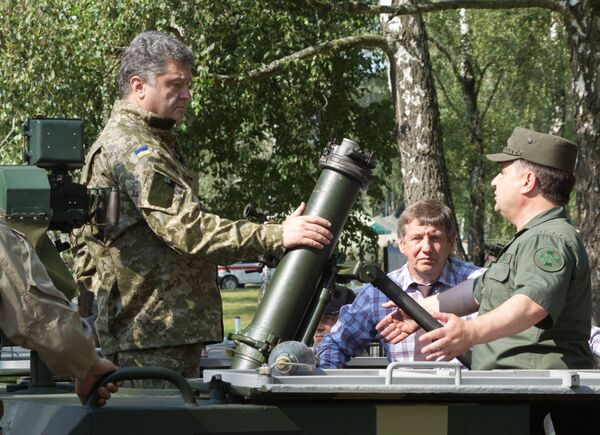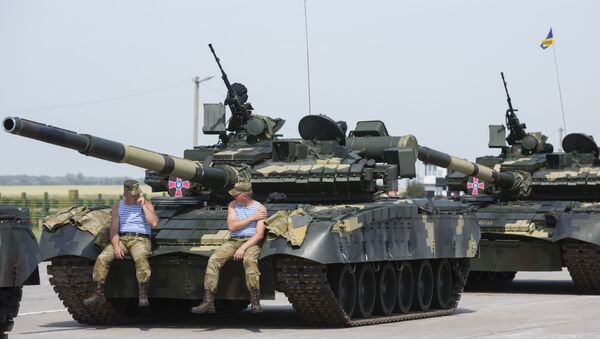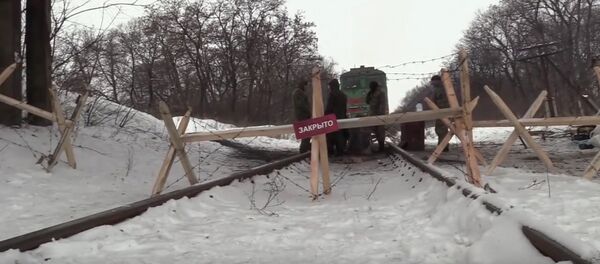Poroshenko posted bombastic footage of Ukraine's T-80 battle tanks on his Facebook page, accompanying it with the nationalistic #GloryToUkraine hashtag.
"Another batch of beautiful T-80 tanks will be sent to the Ukrainian Airmobile Forces on the front line! We are working further to reinforce our defensive capacity!"
However, with this apparently morale-boosting PR-stunt, President Poroshenko seems to be getting himself into a mess for at least two reasons:
- First, as the video states, the caliber of the tank's gun is 125 millimeters, which means that its presence along the contact line in Donbass would violate the ceasefire agreement, which stipulates the withdrawal of heavy weapons such as artillery and tanks whose caliber exceeds 100 millimeters. This can hardly contribute to strengthening the fragile peace in the region.
- Second, the T-80 is a vehicle designed in the Soviet Union (in service since 1976) — this fact calls into question the official de-Sovetization ideology in Ukraine Poroshenko himself initiated in May 2015. This manipultation-of-history policy is aimed at purging the country of all symbols from the Soviet period. However, while content to consign plaques, statues and street names dedicated to the USSR and the wartime accomplishments of the Red Army, the post-coup leader was happy to show off his "beautiful" hand-me-down military hardware, unaware of the logical disconnect. In a hypocritical double standard move, one landmark Soviet symbol is praised while others are buried in oblivion.
Earlier, Poroshenko had called for upgrading old battle tanks instead of acquiring new ones due to insufficient funds.
Crimean lawmaker Ruslan Balbek decried Poroshenko's saber-rattling.
"Instead of ‘doves of peace' the Ukrainian president is sending ‘war hawks' to Donbass. This public boasting of sending modernized T-80 tanks to the zone of the civil conflict means that words like ‘arms and victims' are music to the Ukrainian president's ears", Balbek told Sputnik.
He said that T-80 tanks are formidable weapons and "the Ukrainian authorities hope to quash the popular defense [in Donbass] by a mass armor attack."
"It's a pity that the pride of Soviet tank-building serves not to defend the fatherland but to fire upon civilians and ideological opponents," the Crimean MP observed.
In February 2015, Kiev forces and Donbass independence supporters signed a peace agreement in the Belarusian capital of Minsk. The deal stipulates a full ceasefire, weapons withdrawal from the line of contact in Donbass, as well as constitutional reforms that would give a special status to the Donetsk and Lugansk People's Republics. Despite the agreement brokered by the Normandy Four states (Russia, France, Germany and Ukraine), the ceasefire regime is regularly violated, with both sides accusing each other of multiple breaches, undermining the terms of the accord.




